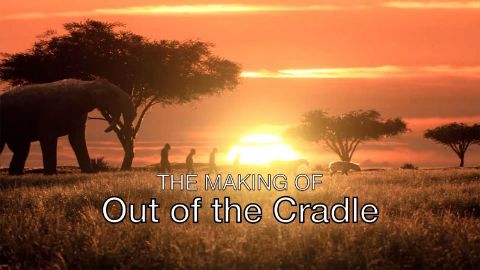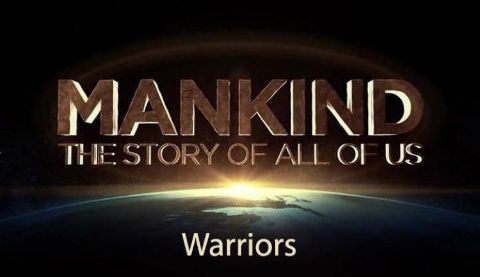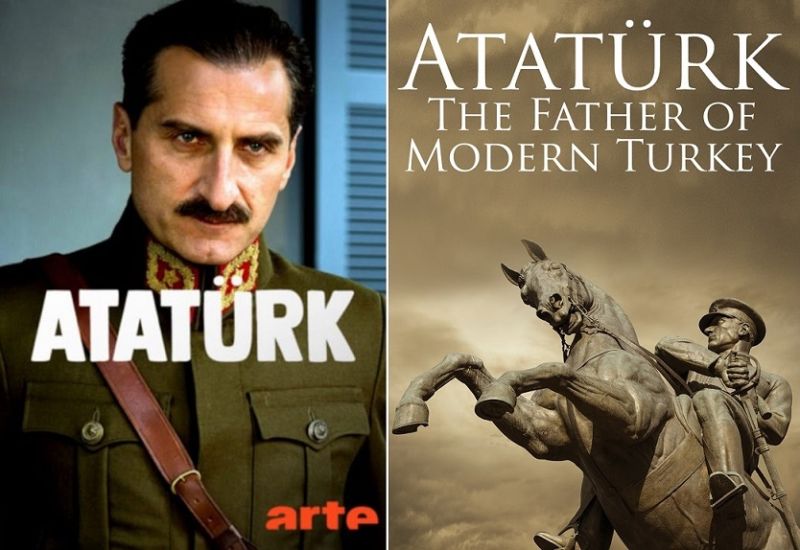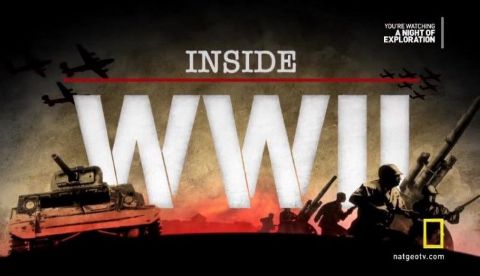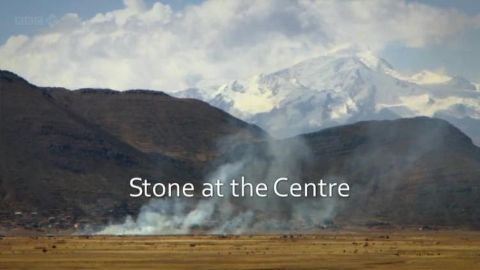You might also like
What is involved in creating a groundbreaking film that documents the latest paleoanthropological findings? This film will shed light on the talent, research, and scientific discoveries that made Out of the Cradle possible.
S1E2 • Out of the Cradle • 2019 • History
When Rome is sacked by barbarians, Europe enters a Dark Age. But from the fringes of the old empire, two new forces remake the world. The Arabs, funded by a gold rush, unite under the banner of Islam. The Vikings rejuvenate the cities of Europe, travel to America and become Christian knights. The stage is set for a clash of civilisations - the Crusades.
4/12 • Mankind: The Story of All of Us • 2012 • History
This in-depth documentary examines the life of Mustafa Kemal Ataturk, who founded the Republic of Turkey from the ruins of the Ottoman Empire. One of the most fascinating personalities of his time: Mustafa Kemal Ataturk. November 10 2018 marks the 80th anniversary of his death. His revolution, which quickly and radically transformed the declining Ottoman Empire into today's Turkey and profoundly changed culture and society, is rooted in European thinking. But Ataturk's unconditional determination also shows dictatorial traits. Mustafa Kemal Ataturk - Monuments to the father of modern Turkey can be found in every city, the anniversary of his death is commemorated every year, derogatory words about him are punishable by law. Rarely has a politician changed a society so radically in such a short time as Ataturk did in Turkey, which was born out of the declining Ottoman Empire. He acted with unconditional determination when it came to catapulting a deeply backward country into modernity. His reforms still have an impact today. Ataturk's revolution is rooted in European thinking, in the French Enlightenment, in the process of secularization in western states. In many ways it is a turning to the West. It is also based on the idea of equality between men and women - unique in the Islamic world at the time. With his cultural revolution, however, he also overwhelms many traditionally oriented Turks. It still has an effect today. How did a young Ottoman officer become the hero of Gallipoli in World War I? How did this hero become the charismatic founder of today's Turkey through the war of independence? How does he push his reforms through in just fifteen years: abolition of polygamy, introduction of Swiss civil law, dress reform, hat reform, language and writing reform? The docu-drama tells the story of Mustafa Kemal Pasha - from his birth in multicultural Salonika to his death on November 10, 1938. Along with interviews with historians, a rich trove of archival footage and photographs enhance the documentary. These are further illuminated by reenactments depicting the intellectual evolution of Ataturk the man, as well as his revolution and political philosophy. Inner monologues drawn from the wide range of the nation's founder's writings and diaries, notes and letters lend authenticity and credibility to the film.
2018 • History
Simon Sebag Montefiore looks at how every event in ancient Rome revolved around religion. From the foundation myth through to the deification of emperors, nothing could happen without calling upon the pantheon of Roman gods. Simon investigates how the Romans worshipped and sacrificed to the gods. He discovers that sacredness defined what was Roman and it was the responsibility of every Roman to play their part in the cult. Even the ancient Roman sewer was holy ground!
S1E1 • Rome: A History of the Eternal City • 2012 • History
Day by day. Hour by hour. Second by second. This is the story of last century's bloodiest conflict told in a concise and compelling 3 hour special. Including personal accounts, strategic analysis and rare footage, Inside WWII provides a new and intimate perspective on the experience of war. A soldier's duty is not to reason why; a soldier's duty is to do or die. Inside World War II is the story of the doing and the dying … in the defining conflict of the 20th century. From the producers of the critically acclaimed specials Inside 9/11 and Inside the Vietnam War comes a three-hour television event that provides a detailed visual timeline of this complex war, with personal, in-depth stories from veterans who fought in one of the deadliest conflicts in human history. Inside World War II combines archival footage with more than 50 testimonies from American, British, German and Soviet servicemen; a former member of the Hitler Youth; and Jewish and black Germans who endured persecution under Hitler's reign. Viewers hear from America's first Japanese American senator, Daniel Inouye, in one of his final interviews before passing away, as he describes with haunting candor what it was like to kill someone during battle. "He had on this German hat, so I told the men, 'That's mine.' He was not only my first, but when I think back, I think back with horror because I was proud." Inouye, a Medal of Honor recipient for his service in World War II, goes on to say, "You don't forget the horrors of the war." The explosive first hour of Inside World War II begins in pre-war Germany at the 1936 Olympics, with American distance runner Louis Zamperini describing in an original, never-before-seen interview what it was like to meet Adolf Hitler. "His face, his mustache, the way he combed his hair. I mean he looked like somebody purposely did cosmetics on him for a comedy. He was, to us, a dangerous comedian." The second hour explores the attitudes of soldiers fresh from battle, including Harold Brown, an original Tuskegee Airman who recalls what it was like to fly next to and protect long-range bombers, and Paratrooper Earl McClung, who shares a harrowing tale of being stranded behind enemy lines. Author Benjamin Patton also explains how his grandfather General Patton commanded a ghost army to mislead the enemy, "He was commanding a fictitious Army group that was made up of inflatable tanks and cardboard vehicles, and tents," while General Eisenhower stormed the beaches of Normandy. Inside World War II culminates with the dramatic events of 1945, from Hitler's suicide to the revelation of Nazi concentration camps. And we'll hear Col. Paul Tibbets address the media after dropping the world's first wartime atomic bomb: "We saw this cloud of boiling dust and debris below us with this tremendous mushroom on top. Beneath that was hidden the ruins of the city of Hiroshima." As Lt. Lynn "Buck" Compton, 101st Airborne, US Army (Ret.), in the last interview he gave before his death last year, concludes, "I'm glad I did it. I wouldn't trade it for anything. Not that it was fun, but I think of it as it's a part of my life. And just lucky that I lived through it."
2012 • History
Deep in the Bolivian Andes at the height of 13,000ft stands Tiwanaku, the awe-inspiring ruins of a monolithic temple city. Built by a civilisation who dominated a vast swathe of South America, it was abandoned 1,000 years ago. For centuries it has been a mystery - how did a civilisation flourish at such an altitude and why did it vanish? Jago Cooper journeys through Bolivia's spectacular landscape to investigate the origins of Tiwanaku and finds evidence of an ancient people with amazing understanding of their environment, whose religion was based on collective effort and ritual beer drinking.
S1E2 • Lost Kingdoms of South America • 2013 • History
